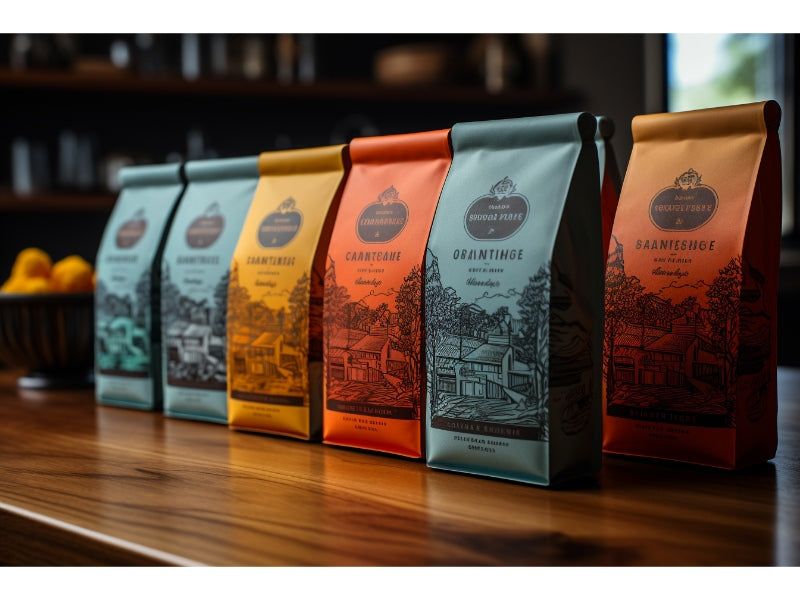What Are The Most Common Coffee Myths?
Coffee has long been a staple in many cultures around the world, but unfortunately, it has also been shrouded in numerous myths and misconceptions. In this section, we will examine some of the most common coffee myths and debunk them once and for all. From the belief that coffee causes dehydration to the misconception that dark roast coffee has the most caffeine, we will uncover the truth behind these popular myths. So hold on to your coffee cups, because you won't believe what we have in store for you!
1. Coffee Causes Dehydration
Contrary to popular belief, coffee does not inherently cause dehydration. In fact, moderate coffee consumption can contribute to daily fluid intake without leading to dehydration.
- Hydration: Coffee can be included in your daily fluid intake, helping to keep you hydrated and not causing dehydration.
- Moderation: Enjoying coffee in moderation, typically 3-4 cups per day, does not pose a risk of dehydration.
- Consider Balance: If you are worried about dehydration, balance your coffee intake with water consumption and incorporate hydrating foods into your diet.
When it comes to enjoying your daily cup of joe, remember that moderate consumption can be a part of a healthy lifestyle. Stay hydrated and savor your coffee without any guilt!
Read: 3 Reasons Coffee Upsets Your Stomach (And What To Do About It)
2. Dark Roast Coffee Has More Caffeine
The belief that dark roast coffee has more caffeine is a common myth. In reality, caffeine levels are actually higher in lighter roasts, as the roasting process reduces the caffeine content. This is because light roasts are roasted for a shorter time at lower temperatures, which preserves more caffeine in the beans. So, if you're looking for a higher caffeine kick, it's best to choose light roasts over dark roasts.
Additionally, lighter roasts tend to have a brighter and more acidic flavor profile, which may be more appealing to those who prefer a stronger coffee experience. It's worth trying out different roasts to discover the flavor and caffeine levels that best suit your personal preferences and energy needs.
3. Coffee Stunts Growth
- Contrary to popular belief, coffee does not stunt growth. This misconception may have stemmed from the idea that the caffeine in coffee can hinder bone growth in teenagers. However, scientific research has disproven this myth, showing that moderate coffee consumption does not have any negative effects on height or bone health.
4. Coffee Increases Risk of Heart Disease
Contrary to the myth that coffee increases the risk of heart disease, moderate consumption can actually decrease this risk. Studies have shown that coffee contains antioxidants and bioactive compounds, which may contribute to improved heart health. For instance, a meta-analysis published in the British Medical Journal found that moderate coffee consumption was associated with a lower risk of coronary heart disease. However, excessive consumption, especially with added sugar and high-fat dairy, may have adverse effects. As with many foods and beverages, moderation is key. It's fascinating to note that when consumed in appropriate amounts, coffee can potentially have benefits for heart health.
Read: Why You Need To Drink Coffee Black
5. Coffee Can Sober You Up
- Despite common belief, coffee cannot sober you up. Only time can reverse the effects of alcohol consumption, allowing the body to metabolize the alcohol naturally. The caffeine in coffee may mask some of the symptoms of inebriation, but it does not alter blood alcohol levels or improve sobriety.
What Are The Actual Facts About Coffee

In the world of coffee, there are many myths and misconceptions that have been perpetuated over the years. However, it’s time to set the record straight and uncover the truth about everyone’s favorite caffeinated beverage. In this section, we will bust the top five coffee myths and reveal the actual facts behind them. From the effects of caffeine on hydration to the truth about coffee and growth, get ready to have your mind blown.
1. Coffee Can Help You Stay Hydrated
- Coffee can assist in keeping you hydrated by contributing to your daily fluid intake, but it should not be your only source of hydration.
- Maintain optimal hydration levels by balancing your coffee consumption with water intake.
- If you are worried about caffeine's potential diuretic effects, choose decaffeinated coffee.
- Be aware of any added sugars or high-calorie creamers in your coffee, as they can affect hydration.
2. Caffeine Levels Depend on the Bean, Not the Roast
When it comes to caffeine levels in coffee, it's important to note that the roast does not determine the amount of caffeine. The caffeine levels are dependent on the type of bean used. Different varieties of coffee beans contain varying amounts of caffeine, and factors such as plant species, growing conditions, and processing methods all play a role in determining the caffeine content.
For example, Robusta beans generally have higher caffeine levels compared to Arabica beans. While the roasting process can impact the density and flavor of the bean, it has minimal effect on the caffeine levels. Dark roasts may taste bolder due to their strong flavors and lower acidity, but this does not mean they have higher caffeine content.
Read: The Differences Between Arabica And Robusta Coffee
To get a caffeine boost, it is best to choose coffee made from beans known for their high caffeine concentration and to consider the origin and variety of the coffee for more information on its caffeine levels.
3. Coffee Does Not Affect Growth
- Coffee consumption does not have a negative impact on growth in individuals, contrary to the myth that it can stunt growth.
- Scientific evidence indicates that moderate coffee intake does not affect bone health or growth in children and adolescents.
- Studies have shown that coffee does not inhibit the absorption of minerals essential for bone growth, such as calcium and magnesium.
- It is essential to maintain a balanced diet and consume coffee in moderation to support overall health and growth.
4. Moderate Coffee Consumption Can Actually Decrease Risk of Heart Disease
Research has shown that consuming a moderate amount of coffee, typically 3 to 5 cups per day, may actually decrease the risk of heart disease. This is due to the antioxidants and anti-inflammatory properties found in coffee. However, it's important to keep in mind that excessive consumption or adding high-calorie ingredients like sugar and cream can negate these potential benefits. To fully reap the advantages, opt for black coffee or use low-calorie alternatives. As with any dietary choice, moderation is key. Enjoy your coffee in a balanced manner to potentially support heart health.
5. Only Time Can Sober You Up, Not Coffee
- Drink water and give it time: The only way to sober up is by waiting for the body to metabolize the alcohol. Consuming coffee will not hasten this process.
- Stay away from more alcohol: Consuming more coffee in an attempt to sober up may create a false sense of alertness, leading individuals to consume more alcohol and intensify its effects.
- Rest and seek help: If someone is intoxicated, it is important to ensure they rest and seek assistance if necessary, rather than relying on coffee to reduce the effects of alcohol.
What Are Some Other Interesting Facts About Coffee?
While we may think we know everything there is to know about coffee, there are still some interesting and surprising facts that may surprise you. Let's bust some of the wildest coffee myths and explore some lesser-known facts about this beloved beverage. From its global impact as the second most traded commodity in the world to its potential health benefits, we'll delve into some intriguing tidbits about coffee that may just change the way you look at your morning cup of joe.1. Coffee Is the Second Most Traded Commodity in the World
Coffee's global impact is immense, as it ranks as the second most traded commodity worldwide. This highly sought-after beverage has significant economic importance, shaping livelihoods and trade relations across the globe. To delve deeper into the significance of coffee as a traded commodity:
- Coffee trade volume: With over 2.25 billion cups of coffee consumed daily, its trade volume is surpassed only by crude oil.
- Economic implications: Coffee trade significantly contributes to the economies of various countries, creating jobs and income for millions of individuals worldwide.
- Cultural relevance: Beyond its economic impact, coffee plays a pivotal role in cultures and societies, fostering social interactions and traditions.
- Market dynamics: The coffee trade market involves intricate supply chains, price fluctuations, and diverse consumer preferences that shape global trade dynamics.
2. The Average American Spends Over $1,000 a Year on Coffee
The average American spends over $1,000 a year on coffee, demonstrating the significant role that coffee plays in American culture and daily routines. This expense reflects the value placed on coffee as a beverage that provides comfort, energy, and opportunities for social interaction. From morning routines to coffee shop meetups, coffee has become an essential aspect of American life. Its widespread popularity has led to the growth of coffee shops and continuous innovation of coffee products to cater to diverse preferences. The amount spent on coffee also highlights the economic impact of the coffee industry, influencing trade, agriculture, and employment. The love for coffee is deeply ingrained in American society, shaping behaviors, social interactions, and even work culture.
3. Coffee Can Help You Burn Fat
- Caffeine in coffee can boost metabolism and enhance fat-burning.
- Drinking black coffee before a workout can increase fat oxidation.
- Chlorogenic acid in coffee may slow down the absorption of carbohydrates, aiding in fat reduction.
Coffee can indeed aid in fat burning due to its caffeine content and other beneficial compounds.
4. Coffee Beans Are Actually Seeds
Coffee beans are, in fact, seeds that are found inside the berries of the Coffea plant. After the berries have ripened, they are harvested and the seeds are extracted, dried, and roasted to become the familiar coffee beans we know. These beans are not your typical legume seeds, as they are the actual pits of the berries. Understanding this distinction can help one appreciate the intricate process of coffee production and the unique qualities of coffee beans.
It is fascinating to think that every cup of coffee begins with these small yet powerful seeds. So, the next time you enjoy a cup of coffee, take a moment to acknowledge the journey of these seeds from the berry to your favorite brew.
5. The Most Expensive Coffee Comes from Animal Poop
- Kopi Luwak, also known as civet coffee, is made from coffee cherries that have been consumed and excreted by the Asian palm civet.
- After passing through the civet's digestive system, the beans undergo fermentation and enzymatic treatment, which is believed to enhance the coffee's flavor.
- Once collected, the excreted beans are thoroughly cleaned and processed to create one of the world's most expensive and sought-after coffees.
- Despite its luxurious reputation and high price tag, ethical concerns have been raised about the treatment and living conditions of civets in the production of this coffee.
- The production process of Kopi Luwak challenges the commonly held belief that luxury and quality always align with ethical and sustainable practices.
Fact: Kopi Luwak, also known as civet coffee, can sell for as much as $700 per kilogram, making it the most expensive coffee in the world.
Frequently Asked Questions
What is the #5 myth about coffee?
The #5 myth about coffee is that it can stunt your growth.
Is there any truth to this myth?
No, this is completely false. Studies have shown that coffee has no impact on your growth.
What are some other common myths about coffee?
Some other common myths about coffee include it being addictive, causing dehydration, and being a diuretic.
Are these myths also false?
Yes, these myths have been debunked by scientific research. Coffee in moderation is not addictive, does not cause dehydration, and does not act as a diuretic.How did these myths come about?
These myths have been perpetuated over time through popular culture and misinformation.




